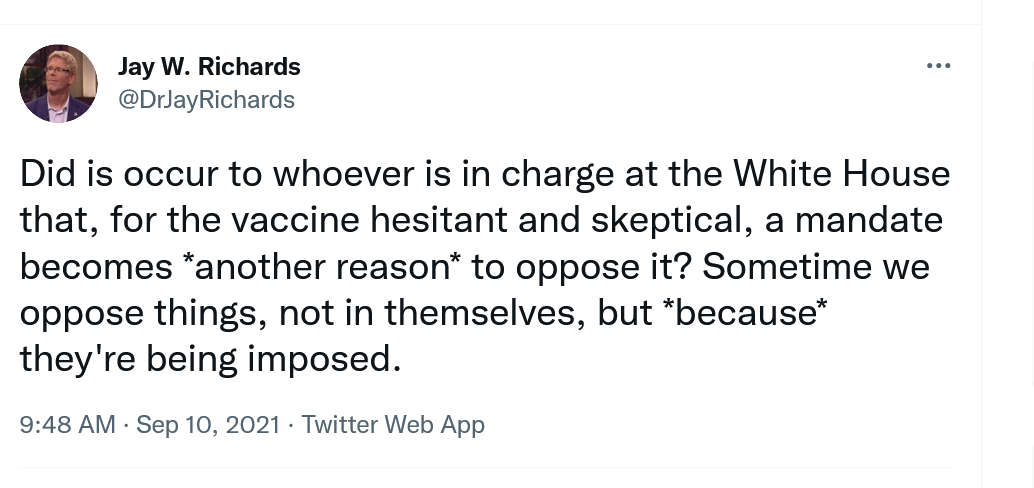
Twitter--the place where someone is always here to tell you that you shouldn't speak.
https://twitter.com/JoshuaErlich/status/1440314564847935491
Seriously, I find it astounding how many people repeatedly trumpet the idea that it is somehow *bad* to explain why there are substantive problems with an argument or a policy that you don't like.
A few months ago, one guy was incensed that I took the time to explain why there were substantive legal problems with an NRO column rather than just calling the person who wrote it a racist who operates in bad faith.
I get it that a lot of people are here on Twitter to connect with those who already agree with them and to revel in the echo chamber.
But some of us are here to talk about issues and get into the merits.
But some of us are here to talk about issues and get into the merits.
That so many people have convinced themselves that *other people* talking about the merits of important current events is somehow a problem is frankly pretty depressing.
But I suppose that's just more proof to that crowd that I'm naive or credulous. 🙄
But I suppose that's just more proof to that crowd that I'm naive or credulous. 🙄
• • •
Missing some Tweet in this thread? You can try to
force a refresh








